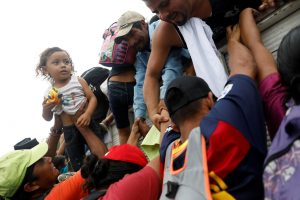
By Gulsen Solaker and Ece Toksabay
ANKARA (Reuters) – Turkey’s president on Tuesday dismissed Saudi Arabia’s efforts to blame the killing of a prominent journalist on rogue operatives, calling it a planned, “savage killing”, and demanded Riyadh punish those responsible no matter how highly placed.
Tayyip Erdogan stopped short of mentioning Crown Prince Mohammed bin Salman, the powerful de facto ruler of Saudi Arabia who some U.S. lawmakers suspect ordered the killing of Washington Post columnist Jamal Khashoggi.
But Erdogan said the person who ordered Khashoggi’s death must “be brought to account”. The comments, in what was arguably his most closely watched speech in recent memory, were his most explicit to date about a case that has sparked global outrage.
Turkish officials suspect Khashoggi, a U.S. resident, and critic of the crown prince, was killed and dismembered inside the consulate by Saudi agents on Oct. 2. Turkish sources say authorities have an audio recording purportedly documenting the killing. Erdogan made no reference to any audio recording.
“Intelligence and security institutions have evidence showing the murder was planned,” Erdogan said in parliament. “Pinning such a case on some security and intelligence members will not satisfy us or the international community,” he said.
“The Saudi administration has taken an important step by admitting to the murder. From now on, we expect them to uncover all those responsible for this matter from top to bottom and make them face the necessary punishments,” Erdogan said.
“From the person who gave the order, to the person who carried it out, they must all be brought to account.”
Riyadh initially denied knowledge of Khashoggi’s fate before saying he was killed in a fight in the consulate, a reaction greeted skeptically by several Western governments, straining their relations with the world’s biggest oil exporter.
The kingdom has since substantially changed parts of its official narrative about the killing, further deepening international concern. A host of Western executives and governments have pulled out of a high-profile Saudi investment summit that started on Tuesday.
A Saudi cabinet meeting chaired by King Salman said Riyadh would hold to account those responsible for the killing and those who failed in their duties, whoever they were.
NEW TIMELINE
The king and crown prince received Khashoggi family members including his son Salah bin Jamal Khashoggi in Riyadh, state news agency SPA reported.
Erdogan offered only glimpses of the concrete evidence some observers had been expecting. Still, he laid out a thorough timeline of the actions of Saudi operatives in the run-up to the killing, as well as some fresh details.
The murder was planned, Erdogan said, from when the 59-year-old Khashoggi first went to the Saudi consulate in Istanbul to obtain documents necessary for his marriage, on Sept. 28. He was told he would need to come back later to collect the documents.
On Oct. 1, a day before Khashoggi was killed, agents arrived from overseas and began to scout locations, including the Belgrad Forest near Ankara and the city of Yalova to its south, Erdogan said. Police have searched both areas for evidence of Khashoggi’s remains, Reuters has previously reported.
On the day Khashoggi arrived for his appointment and was later killed, the hard disk in the consulate’s camera system was removed, Erdogan said.
“Covering up a savage murder like this will only hurt the human conscience. We expect the same sensitivity from all parties, primarily the Saudi Arabian leadership.”
“We have strong signs that the murder was the result of a planned operation, not a spontaneous development.”
SAUDI VERSION
On the day of the killing, 15 people came to the consulate, including security, intelligence, and forensic experts, Erdogan said. Consulate personnel were given the day off.
“Why did these 15 people meet in Istanbul on the day of the murder? We are seeking answers to this. Who are these people receiving orders from?” Erdogan said. He added he wanted Saudi Arabia to send the suspects to Turkey for trial.
The White House and the State Department did not immediately respond to a request for comment on Erdogan’s remarks.
U.S. President Donald Trump has repeatedly played down any suggestion that the crown prince was involved in the killing but has also warned of possible economic sanctions. Trump has also repeatedly highlighted the kingdom’s importance as a U.S. ally and said Prince Mohammed was a strong and passionate leader.
For Saudi Arabia’s allies, the question will be whether they believe that Prince Mohammed, who has painted himself as a reformer, has any culpability. King Salman, 82, has handed the day-to-day running of Saudi Arabia to the 33-year-old prince.
Trump spoke with Prince Mohammed on Sunday. He told reporters on Monday that he had teams in Saudi Arabia and Turkey working on the case and would know more about it after they returned to Washington on Monday night or Tuesday.
CIA Director Gina Haspel was traveling to Turkey on Monday to work on the Khashoggi investigation, two sources familiar with the matter told Reuters.
On Saturday, Saudi state media said King Salman had fired five officials over the killing, including Saud al-Qahtani, a top aide who ran social media for Prince Mohammed. Riyadh is also working with Turkey on a joint investigation
Erdogan spoke as hundreds of bankers and company executives gathered in Riyadh for the Future Investment Initiative, an annual event designed to attract foreign capital under reforms designed to end Saudi dependence on oil exports.
More than two dozen high-level speakers have pulled out following the outcry over Khashoggi’s killing, which many foreign investors fear could damage Riyadh’s ties with Western governments.
(Writing by David Dolan, Editing by William Maclean and Jon Boyle)











